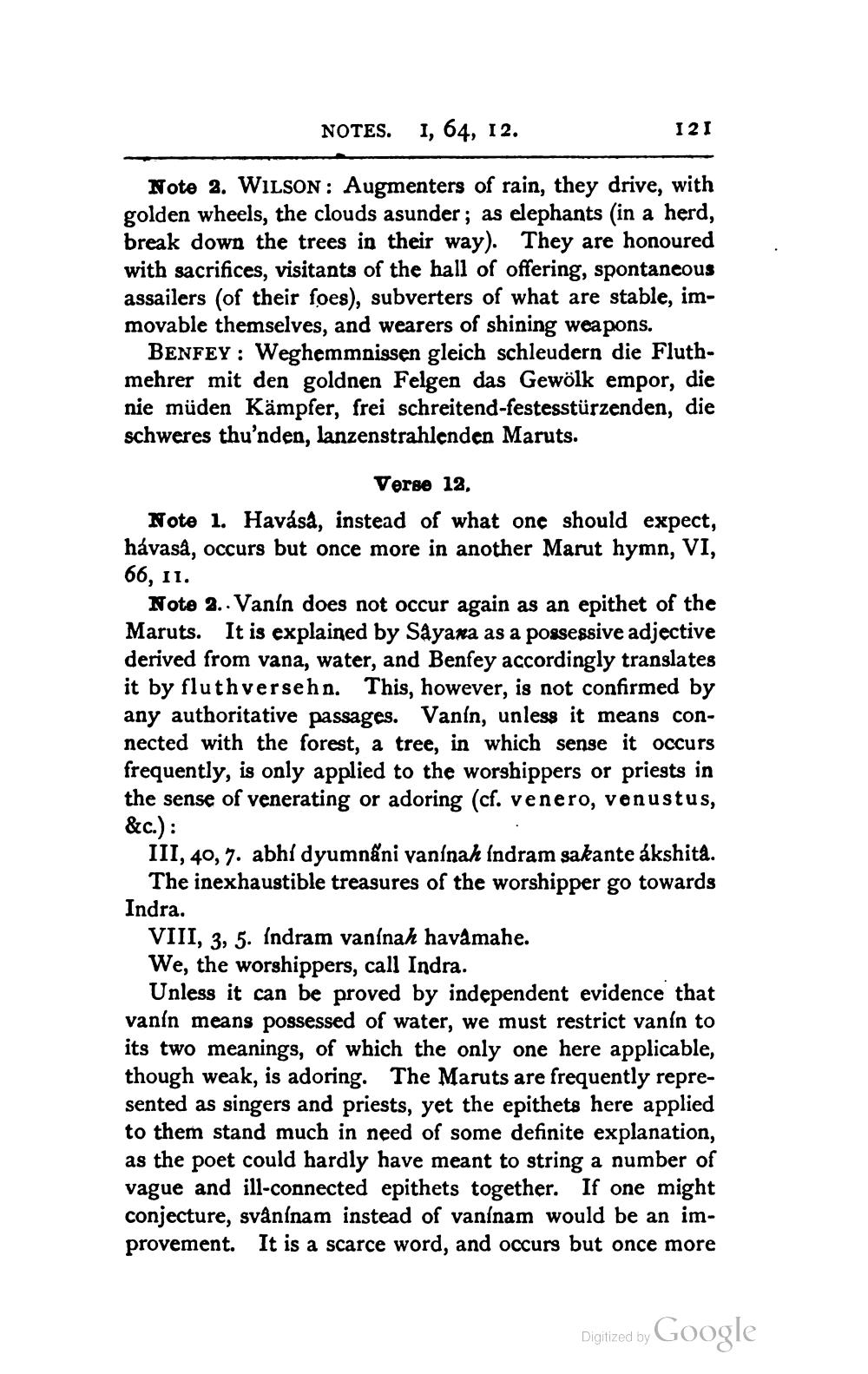________________
NOTES. 1, 64, 12.
I 21
Note 2. WILSON: Augmenters of rain, they drive, with golden wheels, the clouds asunder; as elephants (in a herd, break down the trees in their way). They are honoured with sacrifices, visitants of the hall of offering, spontaneous assailers (of their foes), subverters of what are stable, immovable themselves, and wearers of shining weapons.
BENFEY: Weghemmnissen gleich schleudern die Fluthmehrer mit den goldnen Felgen das Gewölk empor, die nie müden Kämpfer, frei schreitend-festesstürzenden, die schweres thu’nden, lanzenstrahlenden Maruts.
Verse 12, Note 1. Havása, instead of what one should expect, hávaså, occurs but once more in another Marut hymn, VI, 66, 11.
Note 2.. Vanin does not occur again as an epithet of the Maruts. It is explained by Sayana as a possessive adjective derived from vana, water, and Benfey accordingly translates it by fluthversehn. This, however, is not confirmed by any authoritative passages. Vanin, unless it means connected with the forest, a tree, in which sense it occurs frequently, is only applied to the worshippers or priests in the sense of venerating or adoring (cf. venero, venustus, &c.):
III, 40, 7. abhí dyumnâni vaninah indram sakante ákshita.
The inexhaustible treasures of the worshipper go towards Indra.
VIII, 3, 5. Indram vaninah havamahe. We, the worshippers, call Indra.
Unless it can be proved by independent evidence that vanın means possessed of water, we must restrict vanin to its two meanings, of which the only one here applicable, though weak, is adoring. The Maruts are frequently represented as singers and priests, yet the epithets here applied to them stand much in need of some definite explanation, as the poet could hardly have meant to string a number of vague and ill-connected epithets together. If one might conjecture, svåninam instead of vanínam would be an improvement. It is a scarce word, and occurs but once more
Digitized by Google




